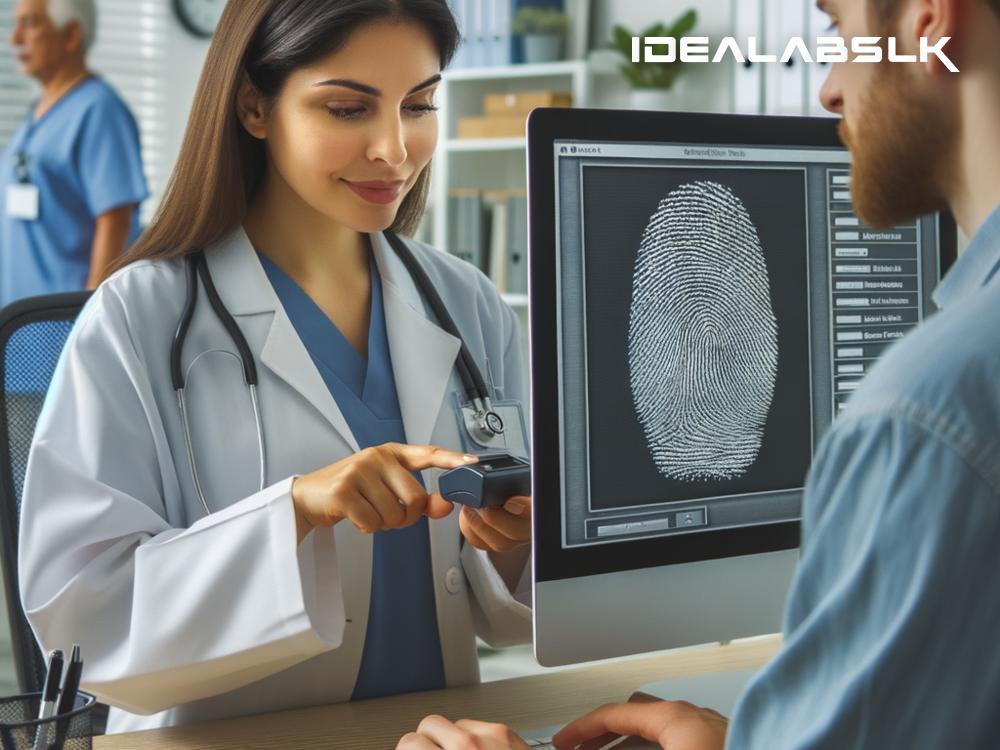How Biometric Authentication is Enhancing Healthcare Security: Protecting Patient Data
In today’s digital age, the security of patient information has become a major concern for the healthcare industry. Traditional methods of authentication, such as passwords and ID cards, are no longer considered robust enough to ward off sophisticated cyber threats. This is where biometric authentication steps in, revolutionizing how healthcare security is approached by leveraging unique human characteristics to enhance the protection of patient data.
Understanding Biometric Authentication
Biometric authentication involves identifying and verifying a person’s identity based on distinct physical or behavioral traits. This can include fingerprints, facial patterns, iris or retina patterns, voice recognition, or even the unique way someone types on a keyboard. The principle is simple yet powerful: while passwords can be stolen and ID cards can be faked, it's exponentially harder to replicate someone's biometric data.
The Shift to Biometric Authentication in Healthcare
The healthcare sector is adopting biometric authentication for several compelling reasons. Firstly, it significantly reduces the risk of unauthorized access to patient records. Traditional passwords are easily compromised, but a fingerprint or a retina scan adds a layer of security that is incredibly difficult to breach.
Secondly, biometrics streamline the authentication process. In an emergency, healthcare providers can quickly access the necessary patient data without wasting precious time trying to remember complex passwords or searching for an access card.
Lastly, biometrics offer a way to improve regulatory compliance. Laws and regulations around patient data security are strict, and for a good reason. Biometric systems help healthcare organizations meet these regulatory demands by providing a clear, auditable trail of who accessed patient data and when.
Protecting Patient Data
The primary goal of enhancing healthcare security is to protect sensitive patient information from falling into the wrong hands. Here are a few ways biometric authentication achieves this:
-
Enhanced Security: Biometric identifiers are nearly impossible to duplicate. This drastically reduces the chance of identity theft or unauthorized access to patient records, ensuring that personal health information stays confidential.
-
Error Reduction: Traditional authentication methods are prone to human error. Biometric systems, on the other hand, accurately verify identities, minimizing the risk of accessing the wrong patient's information.
-
Data Integrity: Biometric systems keep a detailed log of data access, making it easy to track any unauthorized attempts or suspicious activities. This not only helps in preventing data breaches but also in investigating them should they occur.
-
User Convenience: Remembering passwords or carrying ID cards is often cumbersome for healthcare providers. Biometrics offer a convenient and faster way to authenticate, allowing healthcare professionals to focus more on patient care rather than administrative tasks.
Looking Ahead: The Future of Healthcare Security
As biometric technology continues to evolve, its applications in healthcare will likely expand. Future trends could include even more sophisticated biometric modalities, such as heart rate or gait analysis, providing even stronger security measures without compromising user convenience.
Moreover, with the advent of remote patient monitoring and telehealth, biometric authentication could play a crucial role in securely verifying patient identities from afar. This not only has the potential to enhance patient privacy but also to expand access to healthcare services, especially for those in remote or underserved areas.
Final Thoughts
The shift towards biometric authentication in healthcare is a promising development in the fight to protect patient data. By leveraging the unique physical and behavioral characteristics of individuals, biometrics provide a more secure, accurate, and efficient method of authentication than traditional passwords or ID cards ever could.
As technology continues to advance, it’s imperative that healthcare organizations stay at the forefront of these innovations, always looking for ways to enhance the security and privacy of patient information. With biometric authentication leading the way, the future of healthcare security looks not only more secure but also more patient-focused than ever before.

